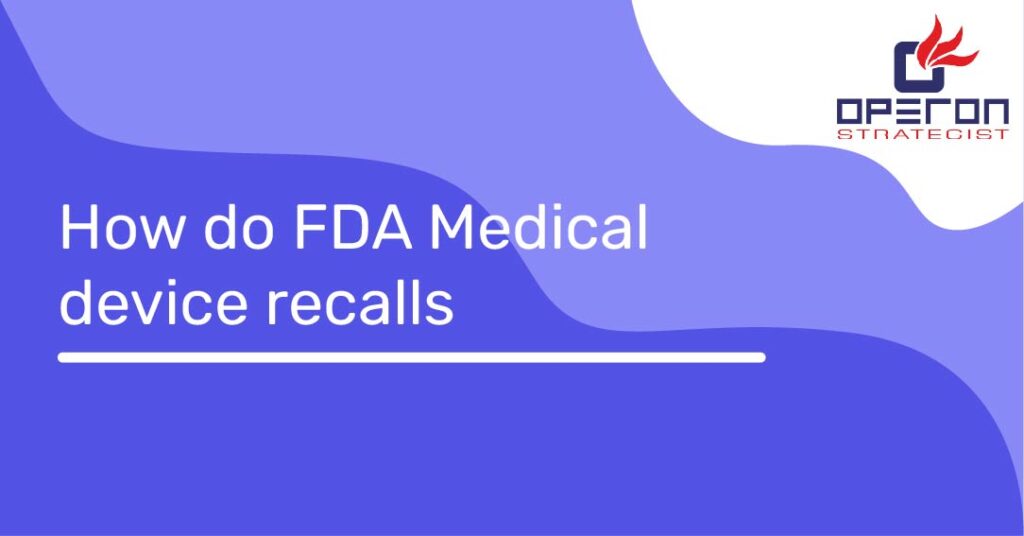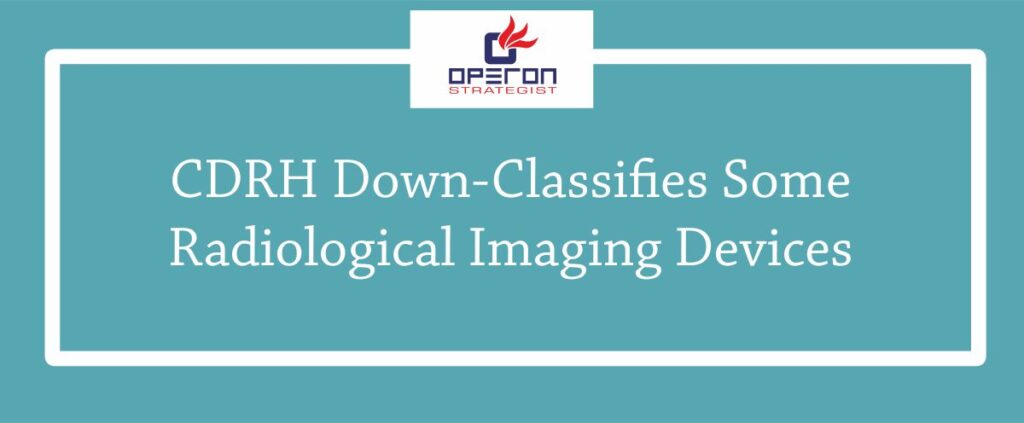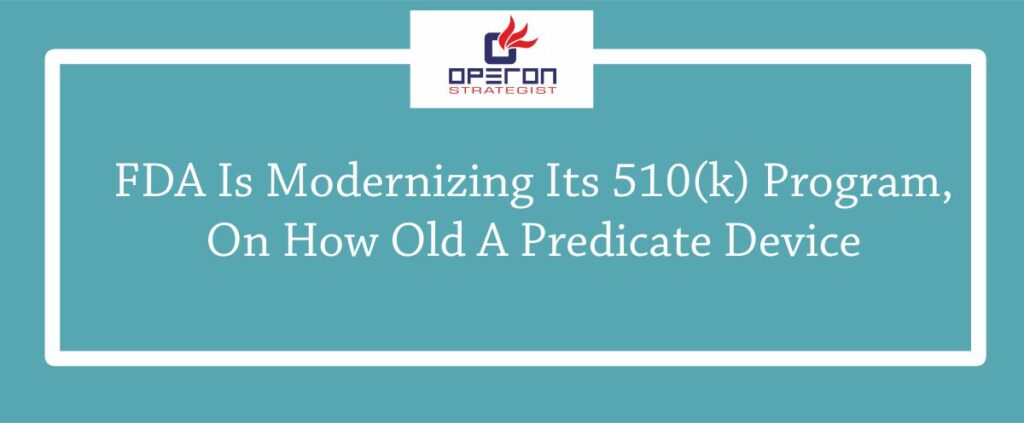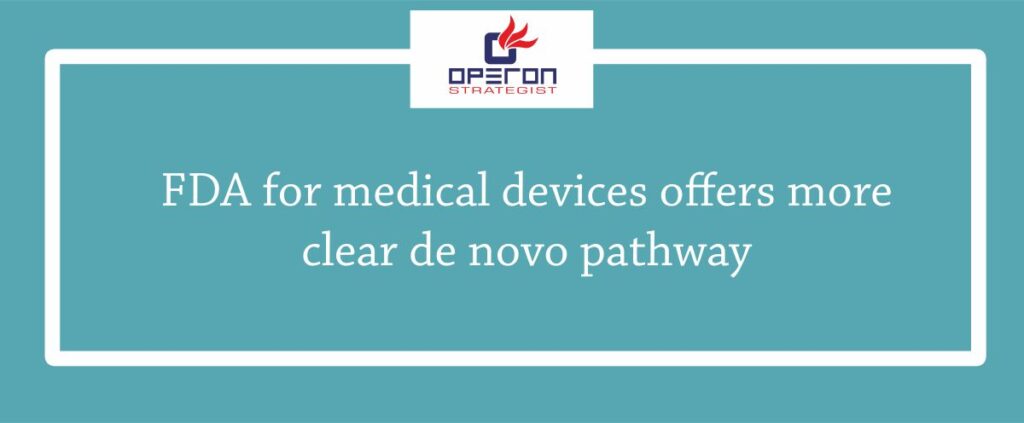To protect consumers health and for the safety of public life and to avoid serious health hazards FDA recall the medical devices. How do FDA medical devices recalls and why ?It has been seen that the major medical device recall happens with the class 1 category ,as the class 1 category medical devices can create serious injuries or death of the patient. So, how does FDA medical device recalls Works?
A recall is a process of removing or modifying products that have been found to be in violation of FDA regulations (FDA). Device Recalls are voluntary actions taken by manufacturers and distributors in order to protect the public\’s health and well-being from items that pose a danger of damage, or are otherwise defective. 21 CFR 7 outlines procedures for conducting a successful recall by responsible businesses.
The FDA\’s processes for exercising its medical device recall power under section 518(e) of the Federal Food, Drug, and Cosmetic Act are described in 21 CFR 810.
When it comes to medical device recalls, how does the FDA become involved?
Despite the fact that the FDA is in charge of much of the regulatory process, most medical device recall start with the manufacturer. Device Recalls, contrary to their name, do not always imply instant removal from usage; in reality, recalls might take the shape of a number of \”corrections,\” including:
- Inspection
- Calibration
- Basic repair
- New labelling
- Performing additional tests
- Notifying patients
- Monitoring users’ feedback
When manufacturers find an issue with an item, they normally execute a voluntary recall.
What is the process of Medical device recalls?
If the manufacturer or importer fails to recall their product FDA may issue recall order under 21CFR 810. Medical devices recall usually conducted voluntarily. Recall means removing or correcting the product. According to the definition of FDA,
Recall means a firm\’s removal or correction of a marketed product that the FDA considers to be in violation of the laws it administers and against which the agency would initiate legal action, e.g., seizure. Recall does not include a market withdrawal or a stock recovery.
Recall strategy means a planned course of action to be taken in conducting a specific recall, which addresses the depth of recall, need for public warnings, and extent of effectiveness checks for the recall.
Recalling firm means the firm that initiates a recall or, in the case of a Food and Drug Administration-requested recall, the firm that has primary responsibility for the manufacture and marketing of the product to be recalled. A recall is a process of removing or rectifying products that are in violation of FDA regulations. Recalls are voluntary actions taken by manufacturers and distributors to protect the public\’s health and safety from items that pose a risk of injury, deceit, or are otherwise defective. 21 CFR 7 gives recommendations on how to perform a successful recall by responsible businesses.
A recall is an alternative to a court action brought by the FDA to remove or fix illegally distributed products. 21 CFR 7 outlines precise recall methods that the FDA uses to track recalls and assess the effectiveness of a company\’s recall efforts. Manufacturers and distributors may choose to recall products voluntarily at any moment, or the FDA may request it. The FDA\’s request that a company recall a product is only made in extreme circumstances, and it is sent to the company that is in charge of the product\’s manufacturing and marketing.
Market withdrawal and stock recovery are not included in a recall. A market withdrawal is when a company removes or corrects a distributed product that involves a minor FDA violation or no violation, such as typical stock rotation operations, routine equipment adjustments and repairs, and so on. The manufacturer almost always conducts recalls on its own initiative.
FDA conducts an examination of the health threat posed by a product that is being recalled or considered for recall, which includes, but is not limited to, the following factors:
- Due to the product any harm or injury occurred to the patient.
- The document supported conclusions having opinion of the individual(s)about the health hazard determination.
- Assessment of level of risk to different segment of the population such as pets ,patients ,livestock , who are expected to the product being considered, with particular attention paid to hazard to individuals who may be at risk.
- The degree of seriousness of the health hazard needs to be exposed.
Recall by classification:
The FDA will give a recall classification based on this determination, such as Class I, Class II, or Class III, to determine the relative level of health threat of the product being recalled or considered for recall. Types of recall :

Class 1recall can cause a severe impact on patient’s life, they can lead to death so these products should recalled voluntarily by the manufacturer. The impact of Class 2 devices may or may not be life threatening such as medical implants, class 3 recall may not likely to cause adverse health consequences .
Strategy of Recall
To recall a product can be very challenging for manufacturer. To recall the product manufacturer need the plan of action which address Depth of recall, public warning, effectiveness check.
Depth gives an idea about distribution chain, manufacturers should notify Public means doctors ,patients ,hospitals .they should know about the recall and effectiveness of the plan should also be checked.
For a manufacturer it is very expensive to recall their product. Few products are recalled because of their serious side effect, medical device recall is for the safety of public heath.




